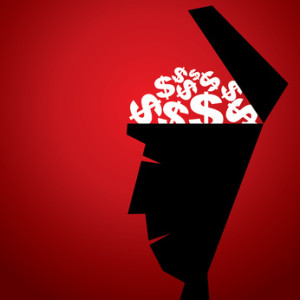 0
0 0
0 0
0 0
0 Simply using cash is costing Americans a massive $43 billion annually. Researchers at the Fletcher School at Tufts University have published a study called “Cost of Cash in the United States,” in which it is discovered that U.S. households on aggregate are throwing away $31 billion just accessing their cash.
Simply using cash is costing Americans a massive $43 billion annually. Researchers at the Fletcher School at Tufts University have published a study called “Cost of Cash in the United States,” in which it is discovered that U.S. households on aggregate are throwing away $31 billion just accessing their cash.
Cash costs money as well as time
ATM fees, bank account fees and other costly incidental charges are totaling an eye-watering $5 billion per year. If this wasn’t bad enough, the report also tells us that the average consumer is wasting 5.6 hours each year going to withdraw cash. That time could be spent working extra hours to earn more money!
Money due to get more expensive
The Government Accountability Office has calculated that ATM fees are only getting more costly. According to their data, between 2007 and 2013 ATM fees were hiked up by 20%, now costing consumers $2.10 as a flat rate just to access cash, regardless of the amount they are withdrawing. The signs are that fees will simply continue to rise.
How to keep your cash for yourself
Although it is not realistic to totally avoid using cash altogether, there are some canny ways that consumers can preserve as much of their hard earned cash for themselves as possible.
– Use credit cards provided you can pay down everything without incurring interest
– Use a debit card whenever this is a possible alternative
– Turn to electronic payments that are commission-free and can be done without needing to leave the computer in your home or office, saving you time as well as money
– Look into cheaper banking alternatives as ways to get better cash flow and keep it.
Free checking accounts
Bank charges and fees are notoriously complex and sometimes arbitrary. This is leading droves of consumers to seek out free checking accounts or alternative bank accounts that provide free checking perks with direct deposit of funds (such as a paycheck or personal loan) or a static minimum balance within the account.
Beware of bank fees that eat your balance
WalletHub conducted some startling analysis that revealed the average bank checking account is accompanied by 30 to 50 charges.
Before switching accounts, it is a good idea to research the different banks’ accounts to see what you are signing up for and how much it will cost you. FindABetterBank.com and Bankrate.com are useful resources for comparing banks and their fees.
Why credit cards are sometimes better than cash
Credit cards are a real double-edged sword for personal finance. If misused, they can lead to debt and escalating fees. When used sensibly, they give consumers added levels of protection such as limited liability in the instances of theft, fraud or if a company a purchase is made goes belly-up before it is delivered. Cash doesn’t pack these punches and can often leave you out of pocket if any of those scenarios eventuate. For consumers who are not using their credit cards to spend more than they can afford, the benefits can be reaped for free and cash-savings made by avoiding using cash directly.
Maximize loans
If you have recently taken a personal loan, consider maximizing your loan funds by using a credit card and paying down the full balance each month or having the personal loan paid into a checking account with minimal fees, to get the most bang for your buck.
How much have you been charged by your bank for the privilege of having a checking account? Are you ready to join the cashless revolution? Share your comments with us, below!

